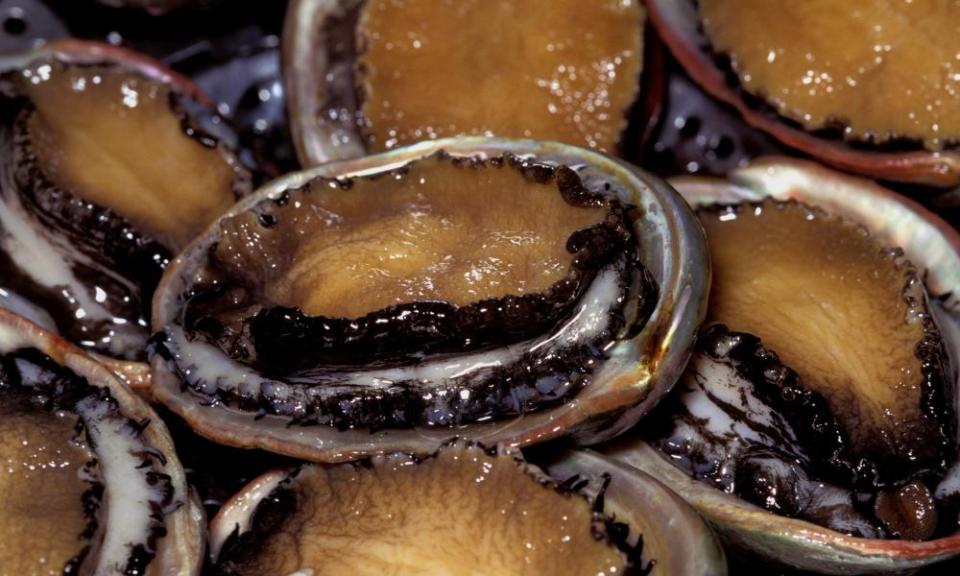Aboriginal groups call on NSW government to end cultural fishing prosecutions

The New South Wales government should cease prosecuting Aboriginal people for exercising their cultural fishing rights, says a coalition of legal, social justice and Aboriginal groups.
The call came following the release of data showing Aboriginal people are massively overrepresented in criminal penalties for their collection of traditional foods.
Aboriginal people make up 4% of people living on the south coast, but they account for 80% of jail terms for fisheries offences since 2009, according to NSW government crime data.
Walbunja man John Junior Carriage was sentenced on Thursday to a one-year jail term, to be served as an intensive corrections order in the community, fined $6,000 and banned from abalone fishing for two years, after being apprehended with two small bags of abalone weighing 9.67kg which he harvested while free diving in December 2017.
Related: ‘Worse than negligence’: NSW dragging feet on Aboriginal child removal reforms
Carriage was found guilty after the magistrate said his actions “potentially impacted the marine environment”.
NSW Aboriginal land councillor for the south coast region, Walbunja man Danny Chapman, said cultural fishers were being “aggressively pursued” and prosecuted for exercising their cultural fishing rights.
“Our people have been fishing and feeding our families for tens of thousands of years on the NSW south coast. It’s one of our enduring cultural practices vital for the health of our people and communities,” Chapman said.
“Every time someone goes to fish, and Fisheries pulls them up and takes their stuff off ’em, that’s just an erosion of our culture. They’re doing this systematically, piece by piece. Pretty soon we will lose our ability to hunt and gather. We will lose all of our stories and our song lines and our culture. And the only way we’ll be able to get food is at Woolworths.
“We here on the south coast are taking a stand against that. The way the government is treating us is wrecking our families, putting the whole heap of stress on householders and extended families about how they are policing this.”
NSW crime data from 2009 to 2017 was collected by Oxfam Australia, which has been working with south coast fishers.
The manager of Oxfam Australia’s First Peoples’ program, Ngarra Murray, said there was “a complete absence” of efforts to work with Aboriginal people in the sustainable management of their marine resources.
“Oxfam has now worked with the south coast communities for four years and we’re yet to see government seriously engage with these marginalised peoples,” Murray, a Wamba Wamba and Yorta Yorta woman said. She described the government’s pursuit of Aboriginal fishers as a “denial of their human rights and the cases should be withdrawn”.
South coast Aboriginal communities are seeking a native title determination over a long section of the coastline land and sea. If successful, they will have rights as native title holders to hunt and fish protected by section 211 of the Native Title Act.
Tony McAvoy, a Wirdi man and Australia’s first Indigenous senior counsel, said there should be a moratorium on all prosecutions while the case was decided.
“This amounts to a denial of the right to life because it is taking away food sources. These rights are protected in binding United Nations human rights treaties to which the Australian government is a signatory,” McAvoy said.
Email: sign up for our daily morning briefing newsletter
App: download the free app and never miss the biggest stories, or get our weekend edition for a curated selection of the week's best stories
Social: follow us on YouTube, Facebook, Instagram, Twitter or TikTok
Podcast: listen to our daily episodes on Apple Podcasts, Spotify or search "Full Story" in your favourite app
John Carriage is one of a number of cases where cultural fishers have been prosecuted by NSW fisheries officers.
In September, the ABC reported the case of 74-year-old great-grandfather Kevin Mason, a Yuin nation elder, who was apprehended by Fisheries officers in Narooma with a small bag of abalone in 2018.
The NSW Council for Civil Liberties president, Pauline Wright, said the government’s attitude was indicative of “systematic racism”. “If the aim was truly to protect the marine environment, they wouldn’t be allowing commercial fishing to expand at the same time as prosecuting Aboriginal fishers,” she said.
The NSW Department of Primary Industries has been sought for comment.

 Yahoo News
Yahoo News 